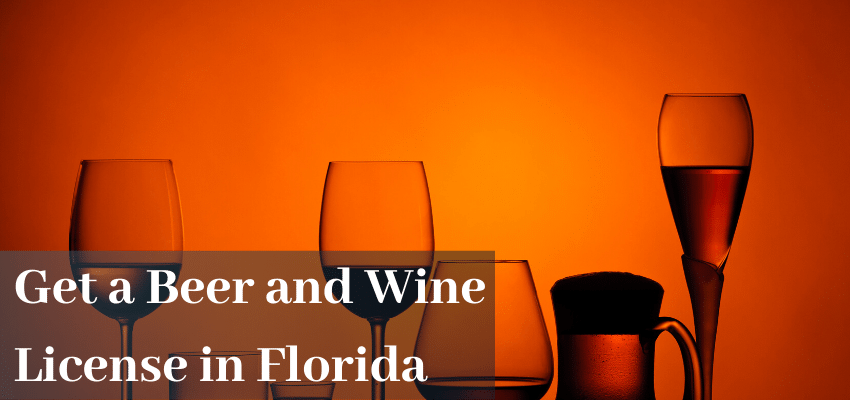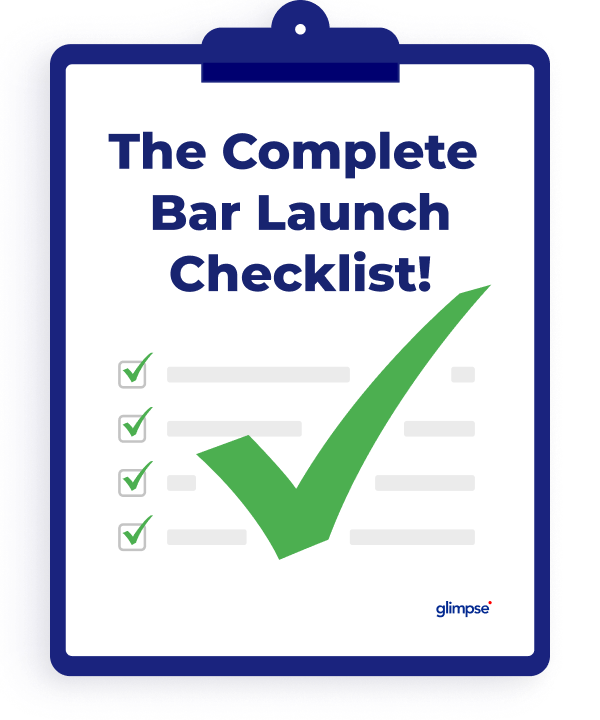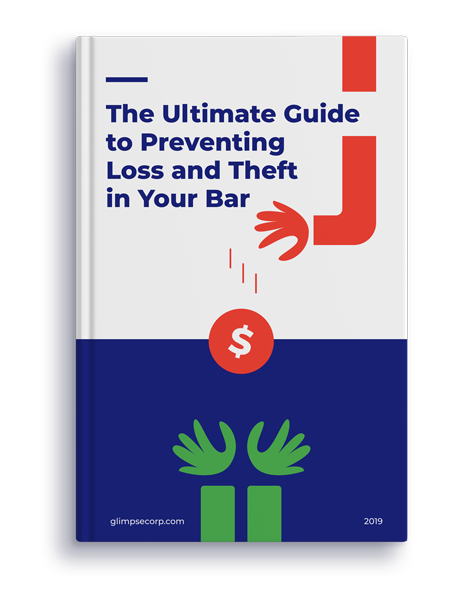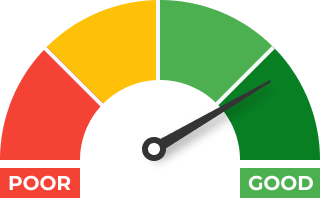If you’re going to have beer or wine on your menu, you’ll need to have the right liquor license that allows you to legally sell alcohol.
The rules and regulations are different for each state so it’s imperative that you understand the licensing process for your own.
In this article, we’re going to look at how to secure a beer and wine license in Florida so you can trade legally.
Ready? Let’s go.
Types of Liquor Licenses in Florida
There are several different types of licenses issued by the Florida Division of Alcoholic Beverages and Tobacco Bureau of Licensing. Consider the following when applying for liquor licensing:
4COP – SRX license
This license requires that you meet certain specifications to sell beer, liquor, and wine to your customers when they’re patrons in your bar or restaurant. There is no limit to the number of 4COP – SRX licenses that are issued in the state of Florida.
Criteria that needs to be met when applying for a 4COP – SRX license includes:
- Your premises must be at least 2,500 square feet to a maximum of 5,000 square feet of floor space under a permanent cover.
- You must be able to seat 150 to 250 customers at tables at one time.
- At least 51% of your gross revenue must come from the sale of non-alcoholic beverages and food.
- Full course meals need to be available to your patrons whenever you’re serving alcohol.
- Package sales of alcohol are not permitted.
4COP – Quota license
If your establishment is a bar, nightclub, or tavern, the 4COP – Quota license is for serving beer, liquor, and wine without meeting the restaurant criteria for obtaining the 4COP – SRX license. Quota licenses are based on population. Additional county quota licenses are approved and issued every time the population increases by 7,500 residents.
The 4COP – Quota license can be purchased on the open market by obtaining a license that is currently held by another licensee. They can also be won through the yearly lottery that is held for new applicants.
2COP license
If you have a small bar or restaurant, this license will allow you to put beer and wine on your menu. You’ll also be able to sell sealed and packaged beer and wine for consumption off premises. Unlike the 4COP-Quota license, there is no limit to the number of 2COP licenses a county can issue.
2APS license
This license is for the sale and purchase of beer and wine specifically for off-premise consumption. This license is typically issued to convenience stores, gas stations, and supermarkets.
Licensing Requirements
When applying for a beer and wine license, your application will need to include one or more of the following pieces of information.
Documents
Include the following documents in your application:
Right of occupancy
You’ll need to show that you have legal right of occupancy to your bar or restaurant. This document can be in the form of a lease agreement, a sublease, a rental contract, or any other document that proves you have occupancy rights.
Zoning
Find out ahead of time if the location of your bar or restaurant is zoned for serving beer, liquor, or wine. Then obtain a document of approval from the zoning authority and include it with your licensing application.
Floor plan of premises
Submit a floor plan sketch of your premises that is drawn to scale.
Corporation registration
If your business is a corporation, you’ll need to provide proof of verification with the Florida Division of Corporations.
EMI
Include your Federal Employer’s ID Number.
Gross Sales
If you’re applying for a quota liquor license, you’ll need to submit records of the gross sales for the past three years or for the period of time that the current licensee has had the license. This information is used to calculate the transfer fee to you.
Personal information
Some personal information is also required for your licensing application.
SSN
Include the Social Security Number for each person on the application.
Previously revoked licenses
If you’ve had any previous liquor licenses revoked or suspended, provide information on the details.
Fingerprints
You’ll need to provide a set of fingerprints for every applicant for the license. Keep in mind that there will be a processing fee for each set of fingerprints.
Certified copies of arrest disposition
If relevant for any applicant, provide certified copies of any arrest for criminal charges in the past 15 years. You may also need to fill out a form validating your character, known as a “Mitigation for Moral Character” form.
Fees
Fees for licensing will vary from one county to the next and are based on county population. Fees will also depend on what type of liquor license you need for your establishment. For instance, a 4COP license in a county with a population over 100,000 will cost you $1850 for one year.
The yearly fee for a 2COP license for a small restaurant to add beer and wine to the menu is $280 plus 40% of the fee, for a total of $392. Make sure you understand clearly what you can expect when it comes to fees and when in doubt contact a liquor license consultant for help.
Process of Approval
Once you’ve got all the documents and other information together, you’re ready to submit your application. Submit to the Division of Alcoholic Beverages and Tobacco (DABT) in Florida. The division will go over your application and schedule a time to inspect your bar or restaurant. They’ll make the decision to approve or deny your application – upon approval you can expect to receive your license in the mail.
Wait times for your license to be approved can be anywhere from one to three months. If you’re planning for the opening of your new bar or restaurant, be sure to submit your licensing application well ahead of time.
Florida Alcohol Sales Laws
When serving alcohol both you and your employees should have a clear understanding of the liquor sales laws and violations in Florida.
Legal drinking age
Federal law also rules in Florida with a legal drinking age of 21. It’s illegal for you to sell beer, liquor, or wine to anyone under the age of 21, with no exceptions allowed. If you fail to comply with this law you put your liquor license in jeopardy and may face revokement of the license, steep fines, and even jail time.
Legal serving
Although the legal drinking age is 21, servers aged 18 and older can serve alcohol in your bar or restaurant.
Serving intoxicated customers
It’s important that you train your employees about alcohol safety and recognizing the signs of intoxication. Both you and your employees will need to avoid selling to patrons who are intoxicated. Selling alcohol to anyone who appears to be over the limit can result in some heavy civil and criminal liabilities for your business for any damages caused by the intoxicated individual.
Alcohol and driving
Like other U.S. states, driving while under the influence (DUI) is a crime and can result in heavy fines. There is a Zero Tolerance law in Florida with an immediate driver’s license suspension. Your employees may be trained to recognize intoxicated customers – it’s just as important for them to be aware of alcohol and driving laws so they can monitor the number of drinks a patron who they know is driving has consumed.
Hours of sale
Your employees need to be aware of the hours they can serve alcohol to your customers. Some counties and cities in Florida have set up their own ordinance laws for hours of service – if no ordinance has been passed, you’ll be able to serve alcohol up until 2 a.m. Existing ordinances to be aware of include:
- Up to 3 a.m. sales in Tampa bars and nightclubs.
- Up to 4 a.m. sales in Broward County.
- 24-hour sales in Miami’s entertainment district.
Corking
Within Florida, it’s illegal to carry or transport an open container of alcohol, including beer and wine. However, there is one state law that allows your customers to take home an open bottle of wine. If your patrons buy a bottle of wine with dinner that they’re unable to finish drinking, one of your employees can reseal the bottle and bag it, providing a dated receipt that confirms purchase from your bar or -restaurant.
Conclusion
Whether you’re opening a new bar or restaurant or taking over an existing establishment, it’s imperative that you understand the rules and regulations of liquor licensing. Business owners in Florida who violate the requirements of licensing face stiff penalties and fines and may be banned from obtaining a license in the future. Don’t take the risk – familiarize yourself with the information in this guide for getting a beer and wine license in Florida.

Business Insights With Glimpse

Glimpse provides business analytics and loss prevention technology for bars, restaurants and nightclubs.
Learn More









 +1 (786) 292-2373
+1 (786) 292-2373 insights@glimpsecorp.com
insights@glimpsecorp.com





